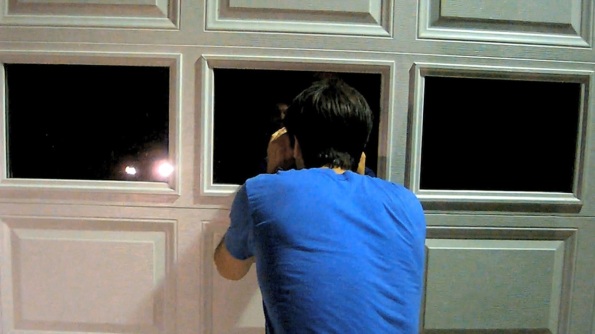Catfish
In the pre-amble to watching Catfish, I read an awful lot of stuff I now wish I hadn’t. I eagerly anticipated the film/documentary (knotty issues yet to be resolved clouding the determination of genre) and scoured the internet for information: this might normally be useful but in this case, not so.
For example, every single review touched on (unavoidably) the ‘reveal’ that’s of pivotal place just the other side of the second third, and whilst no spoiler revelations were forthcoming (apart from on The Guardian website, which I’d been warned about), the idea of such a ‘twist’ as the rug is pulled (or yanked, or furled in a messy clump) from under the viewer is something I’m a bit of a sucker for: any unforeseen surprise that jolts you out of your comfort-zone and reconfigures the whole enterprise anew. So I spent a stupid amount of time trying to figure out what it might be (without really wanting to know). And everything I came up with was far more sensational than the reality, and luckily, less interesting. But still: I was expecting baseball-bat wielding hillbilly paedophiles to turn up and go mental, and they didn’t. So I spoiled things for myself.
In any case: a young photographer, Nev, working out of a Manhattan office, develops a Facebook relationship with a young girl, Abby, who paints renderings of his photos and sends them back. The photographer’s brother and friend, who also work out of the same office, start to record this burgeoning friendship (though I did, perhaps cynically, wonder why they bothered – was it that pressing a necessity or that exciting a development?) . This becomes a charming, flattering sideline to Nev, who corresponds in benevolent, amused, grateful fashion. Soon enough, Abby’s relatives add him as friends and the frequency of contact and size and magnitude of packages increase. The address-to-camcorder nature of the project begets a level of uneasiness inherent in most similar examples of such film-making. There’s just something about the immediacy of the ‘pseudo-amateur’ handheld format (strangely exacerbated in digital), the lack of artificiality and stringent framing, that refuses centrality and comfort. You cannot relax watching shaky-cam, and feel less in control. Not only does it feel more authentic, there’s nowhere to hide. Accustomed as we are to home video recordings, we find it harder to gain access to a sense of detachment from them as they don’t assume a pointedly artificial form and are not recognisably ‘cinema’. Your subconscious is never brought into play: it’s all visceral and sensory.
Abby’s mother Angela and sister Megan eventually move into the foreground and begin to jostle for primary attention. Gambits are made re: commitments of intimate vulnerability. Songs they made are posted for Nev, and something clicks as to the nature of the connection that is flourishing here. Something doesn’t add up, it’s all too much, and cracks begin to appear, inconsistencies and bits of contradictory misinformation become apparent. The building, for example, where the prodigious Abby’s ‘exhibition’ of paintings is being held, is found to be empty, as it has been for four years. And those songs are ripped from elsewhere. What is the game here, and where is it going?
Well, it becomes eroticised very quickly: Megan, who wouldn’t know the ugly stick were she to trip over it, starts to ramp up the sex-factor and Nev happily colludes, shyly entranced. He creates a superimposed image of himself and Megan together, and disquiet as to the bogus nature of some claims is put on the back-burner as inexorable curiosity takes hold. Cue a trip to Michigan to check the internet family out, nerve-shredding late night drives along quiet streets and the eventual revelations…which are both depressing and horribly mesmerising, in the same way that a car that’s just ploughed into a house must be.
Catfish, for the most part, feels like a government-subsidised rail against the perils of the internet, then swerves off into murkier terrain and ends up an uneasily ambivalent altruistic/voyeuristic portrait of a lost America. It feels less like a slowly, fortuitously unravelling documentary than an opportunity grabbed a little too enthusiastically with both hands. Rumours proliferate as to the bona-fide status of the film as straight-out documentary, some suggesting that it’s partly staged, others that the all-too-real finale has been back-storyboarded. Many argue that Catfish is grievously and inexcusably manipulative. (It’s fair to point out that the individual central to the final part of the film insists that they manipulated the film-makers, not vice-versa.) The film-makers are currently embroiled in a dispute as to the ‘fair use’ of music in the film in light of the questioning the veracity of ‘documentary’ status has undergone. Here’s hoping the whole furore was a masterful marketing exercise by Mark Zuckerberg. Catfish, whatever it is or isn’t, is a powerful, fascinating example of raw film-making that posits a nebulous, endlessly ruminative conclusion well worth pondering.
